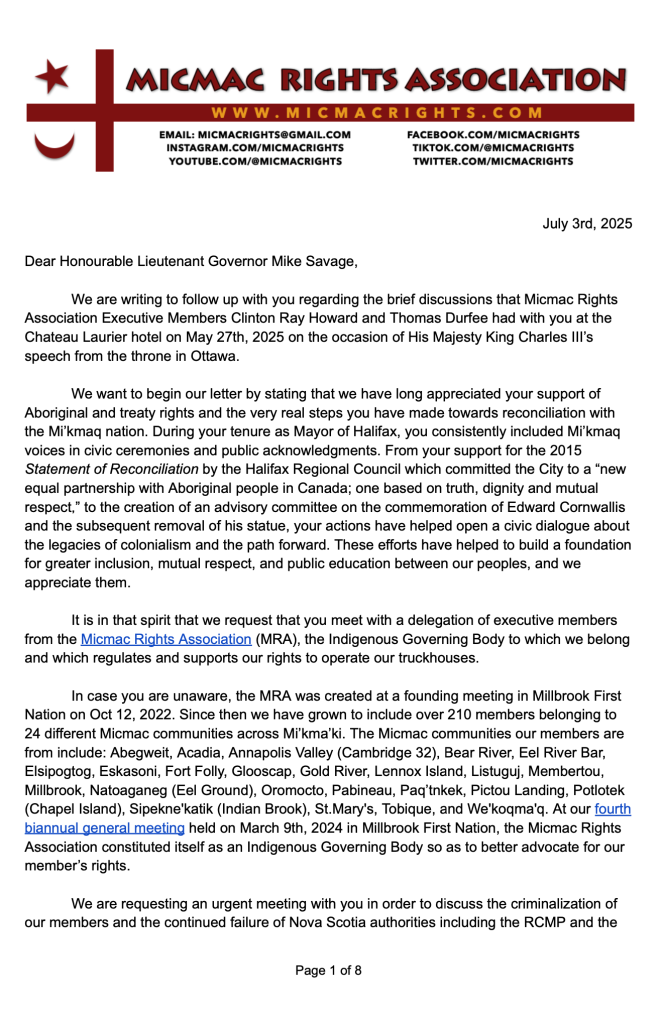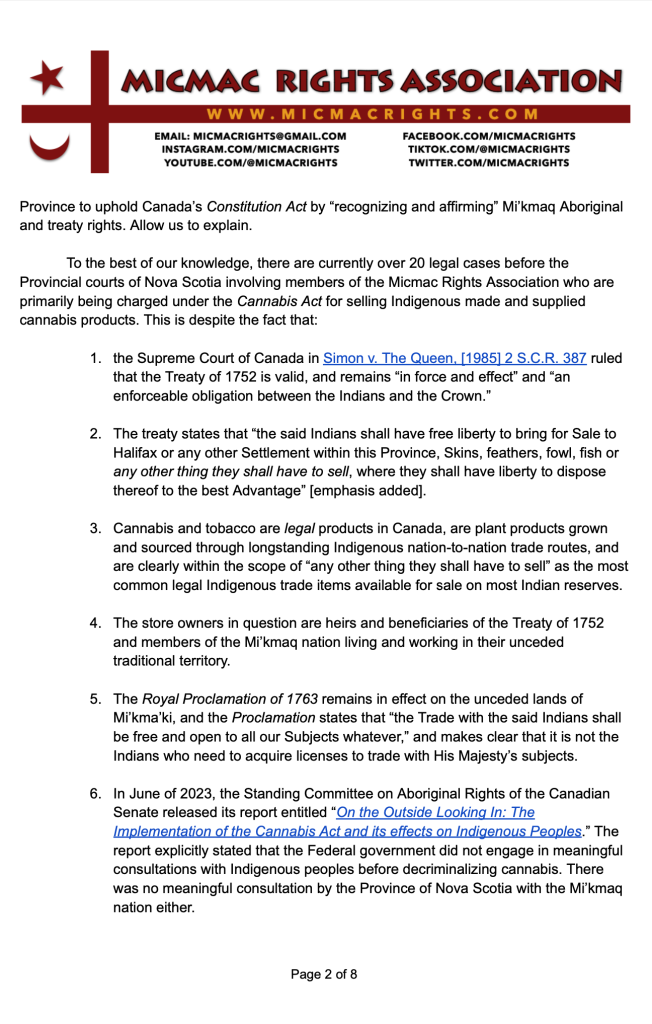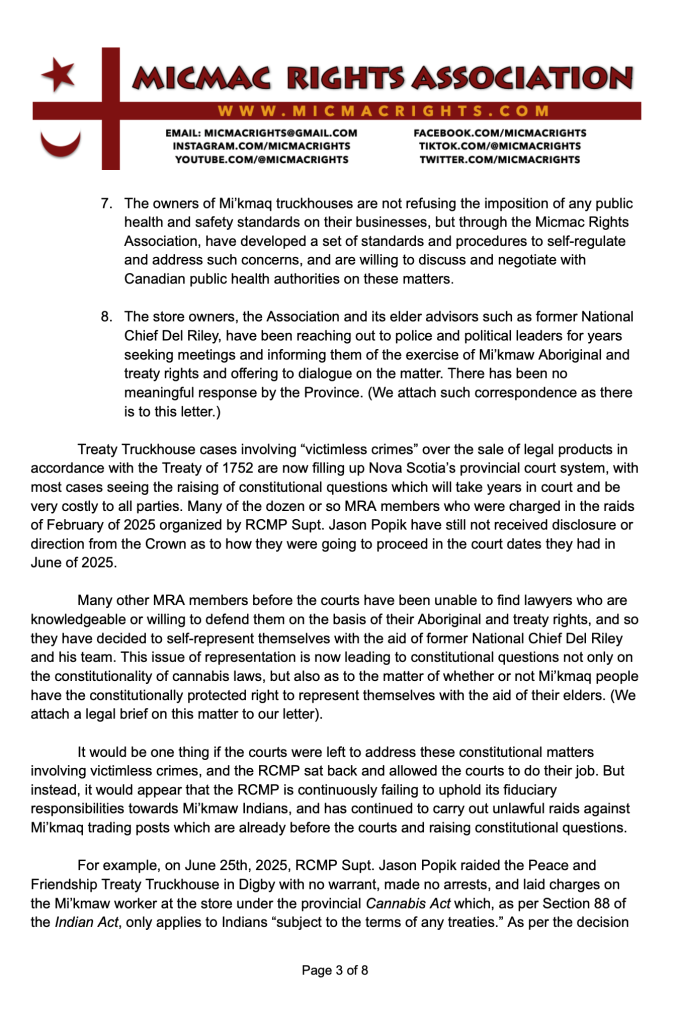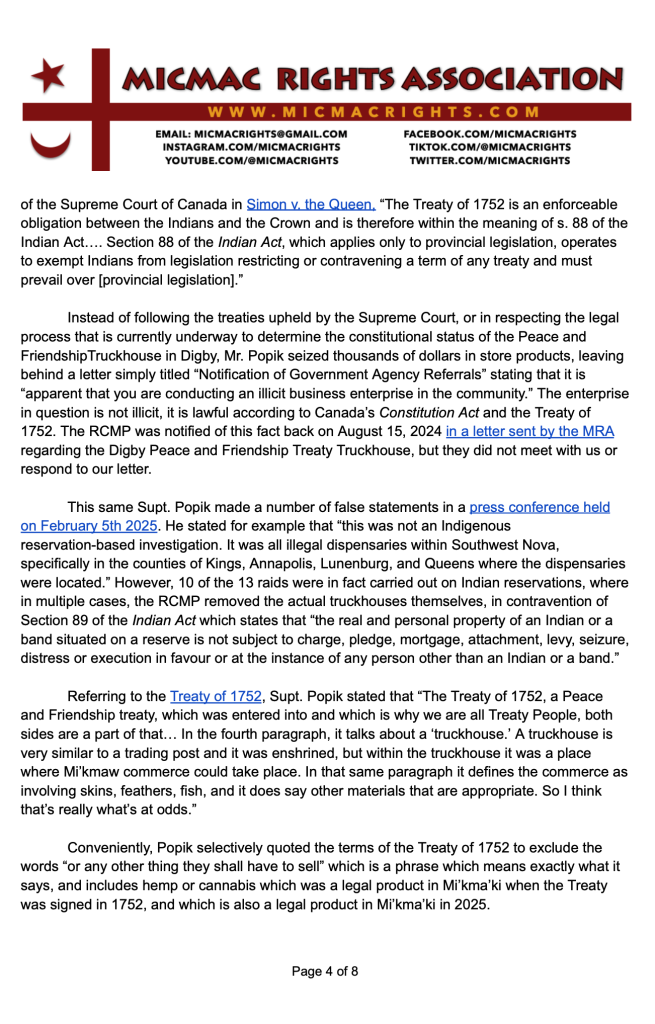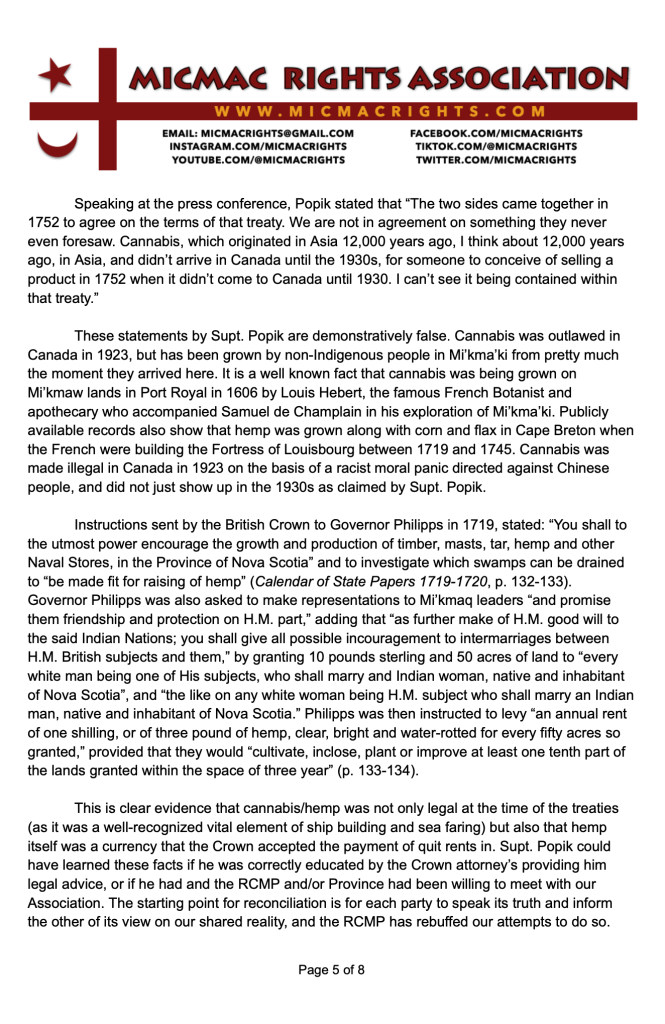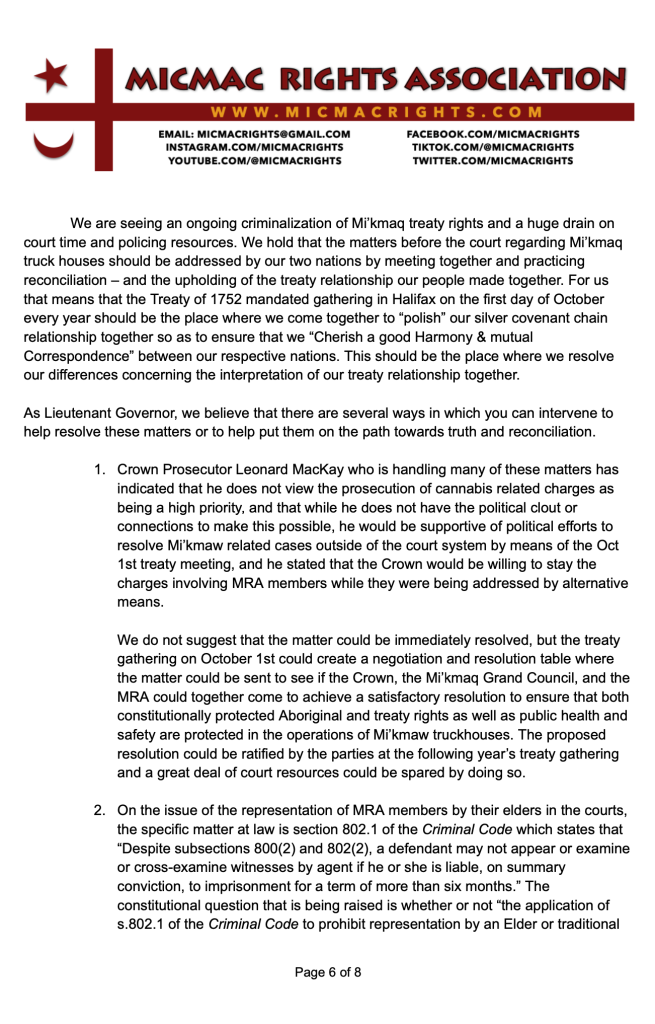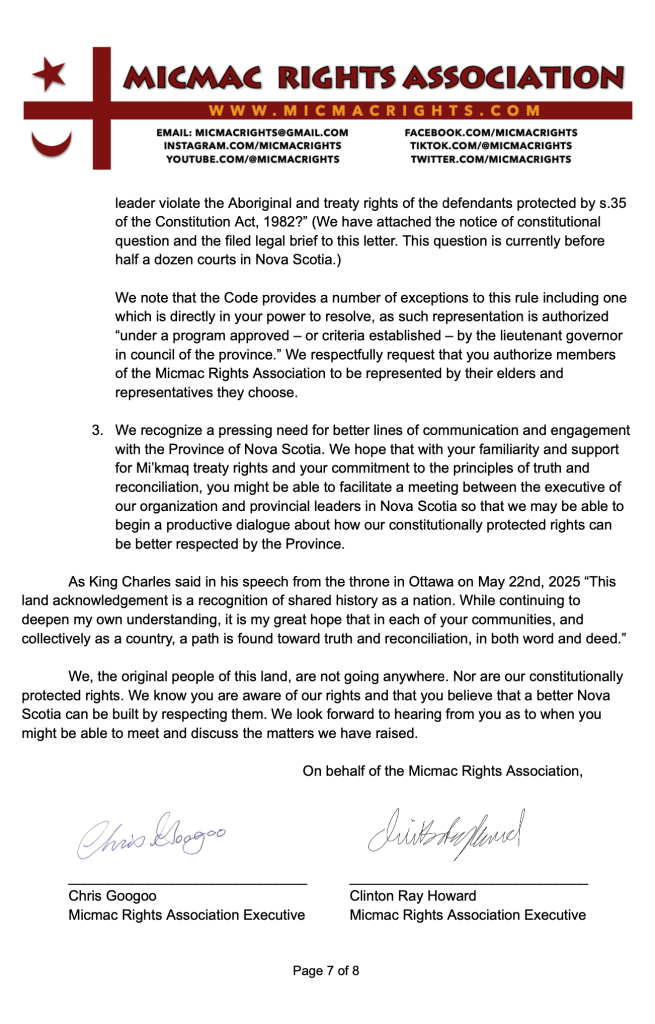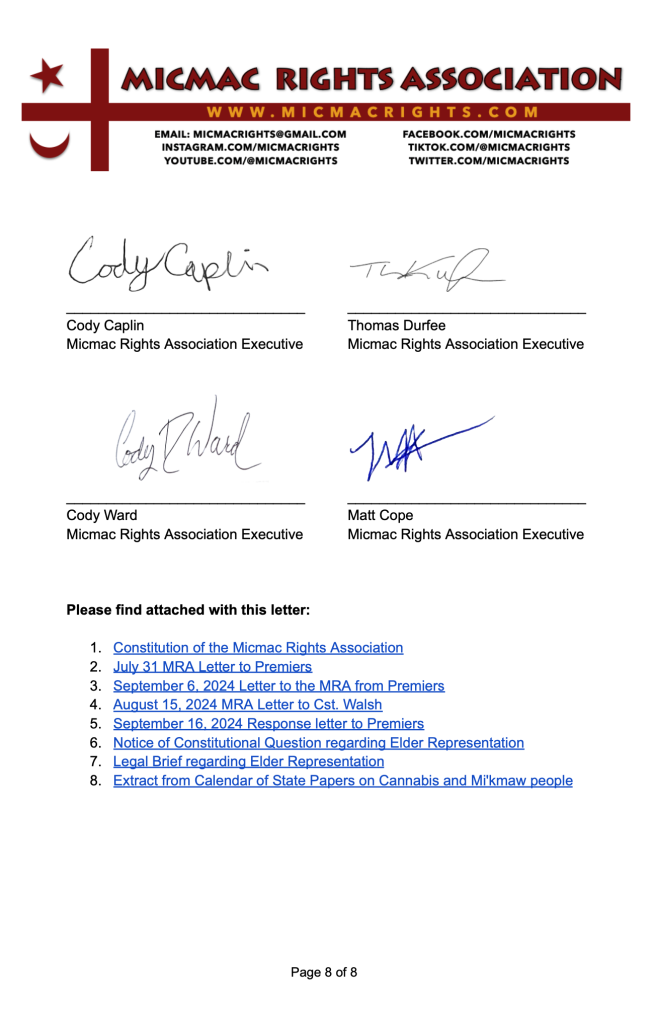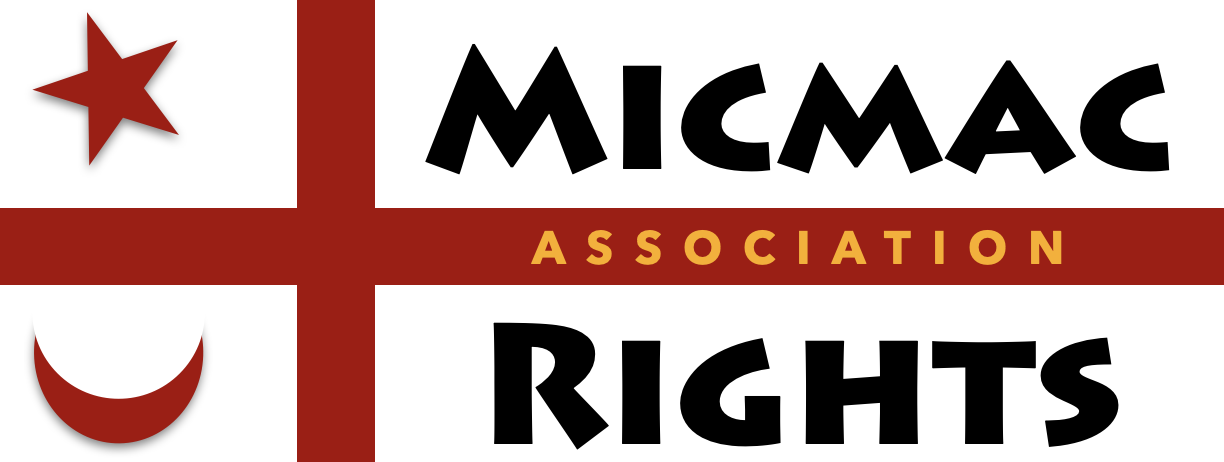On July 3rd, 2025, the Micmac Rights Association (MRA) sent an eight page letter to Nova Scotia’s Lieutenant Governor, Mike Savage, calling for an urgent meeting to address the ongoing criminalization of Mi’kmaq treaty rights. The letter follows up on an informal conversation held between two MRA executive members and the Lieutenant Governor during King Charles III’s recent speech from the throne in Ottawa.
The MRA, which was formally constituted as an Indigenous Governing Body in 2024, now represents over 210 members from 24 Mi’kmaq communities across Mi’kma’ki. Many of these members operate truckhouses – traditional trading posts – regulated under Mi’kmaq law and the Treaty of 1752. That treaty, upheld by the Supreme Court in Simon v. The Queen (1985), guarantees Mi’kmaq people the right to trade “skins, feathers, fowl, fish or any other thing they shall have to sell.” The Association argues that this explicitly protects the sale of Indigenous-grown cannabis and tobacco which are both legal products in Canada.
Despite this constitutional protection, more than 20 MRA members are currently facing charges under the Cannabis Act in Nova Scotia. Many of these cases stem from aggressive RCMP raids – including the controversial February 2025 raids in which truckhouses were seized directly from reserve lands, an action that violates Section 89 of the Indian Act. The RCMP’s continued and violent enforcement – despite unresolved constitutional questions before the courts – has further escalated tensions.
A particularly troubling example cited in the letter is the June 2025 warrantless raid on the Peace and Friendship Treaty Truckhouse in Digby, led by RCMP Supt. Jason Popik. The MRA contends that these actions contravene not only the Treaty of 1752, but also Section 88 of the Indian Act, which as a matter of settled law, exempts Indians from provincial laws “subject to the terms of any treaty.”
The MRA also challenges misleading public statements made by Supt. Popik, including his claim that cannabis was unknown in North America at the time of the Treaty of 1752. The Association provided the Lieutenant Governor with historical evidence of cannabis cultivation in Mi’kma’ki dating back to the early 1600s, when Louis Hebert planted hemp at Port Royal. The British Crown’s colonial instructions from 1719 also encouraged the then governor to undertake hemp cultivation in Nova Scotia, and allowed payment of quit rents in hemp, highlighting the role of cannabis/hemp as a currency in colonial times.
Another issue of concern raised in the letter is the lack of access to legal representation for MRA members, many of whom are now self-representing themselves in their legal battles with the former National Chief Del Riley acting as their agent. They are raising constitutional questions about their right to be represented in court by traditional elders – rights currently impeded by Section 802.1 of Canada’s Criminal Code. The letter urges the Lieutenant Governor to exercise his power under the code to approve a program allowing such representation on behalf of MRA members.
Finally, the MRA proposes resolving treaty rights issues before the criminal courts at the annual October 1st Treaty Day gathering in Halifax. They ask the Lieutenant Governor to help bring together the Mi’kmaq Grand Council, the Micmac Rights Association, and provincial leaders to find a political solution based in treaty recognition and mutual respect.
Reconciliation cannot be achieved through criminalization. It must come through dialogue, truth, and respect for the treaties that connect the Mi’kmaq Nation and the Crown.
